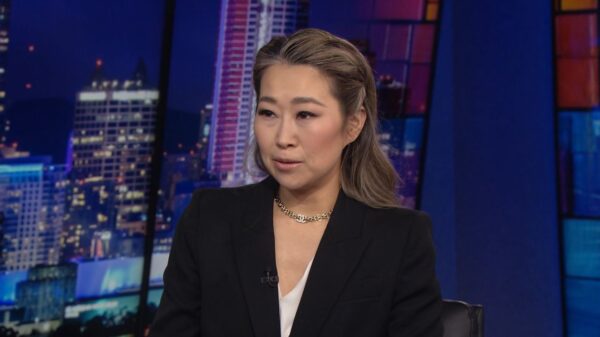UPDATE: The U.S. government has officially reopened as of Wednesday, January 30, after President Donald Trump signed H.R. 5371 into law, ending the longest government shutdown in U.S. history. This critical move is expected to bring significant relief to travelers just in time for the bustling Thanksgiving holiday.
Travelers returning home for Thanksgiving can now breathe a sigh of relief as the reopening is anticipated to stabilize air travel operations that had been severely disrupted by the shutdown. Delta Air Lines CEO Ed Bastian expressed optimism during an interview with “CBS Mornings,” stating, “I think the system should return to normal by the weekend.” However, travelers remain anxious about the extent of flight cancellations and delays still affecting major airports across the country.
The reopening has led to a noticeable shift at Hartsfield-Jackson Atlanta International Airport, the world’s busiest airport. Passengers reported a sense of relief as they prepared to board flights, knowing that the shutdown’s impact was beginning to fade. Yet, despite this positive news, about 6% of flights at 40 major airports are still being cut due to ongoing staffing shortages among air traffic controllers, according to the Federal Aviation Administration (FAA).
Transportation Secretary Sean Duffy stated that these cancellations were vital for safety during the shutdown. Many air traffic controllers missed paychecks since October 1, leading some to seek additional work or call in sick. “This has all been data-based,” Duffy remarked, noting increased complaints from pilots regarding communication with controllers.
As conditions improve, airlines are working diligently to resume full operations. Delta has pledged to return to full capacity in the coming days, while Southwest Airlines reported “real progress” in returning air travel to normal. American Airlines is also optimistic about minimizing flight cancellations for the holiday, although they acknowledge that full controller operations may take a few days to stabilize.
Compounding these issues, TSA employees who worked without pay during the shutdown will soon receive back pay, as confirmed by Homeland Security Secretary Kristi Noem. She shared that administrative work to expedite these payments was completed late Wednesday night. “They’ve already missed pay periods and recognizing that that’s a hardship on their families,” Noem said, adding that some TSA employees will receive a $10,000 bonus for their exceptional service during this challenging period.
Looking forward, the airline industry faces long-term challenges, including a shortage of over 3,000 air traffic controllers, which has contributed to operational difficulties. Despite this, industry leaders, including Chris Sununu of Airlines for America, emphasized that the competitive marketplace means ticket prices shouldn’t spike due to the shutdown’s impact.
However, the reopening is not a permanent solution. The current funding only lasts through January 30, raising concerns about potential disruptions in three months. Max Stier, president and CEO of the Partnership for Public Service, warned, “There’s no back to normal in this deal because all it does is kick the can until January 30.”
As the nation gears up for one of the busiest travel periods of the year, the government shutdown’s effects linger. Industry leaders stress the need for stability to avoid future crises that impact millions of travelers. The air travel system must be fortified to prevent similar disruptions, especially during peak travel seasons.
Travelers are advised to stay informed and check flight statuses regularly as airlines work to overcome the residual effects of the shutdown. With Thanksgiving just around the corner, the urgency for smooth air travel has never been more pronounced.







































































